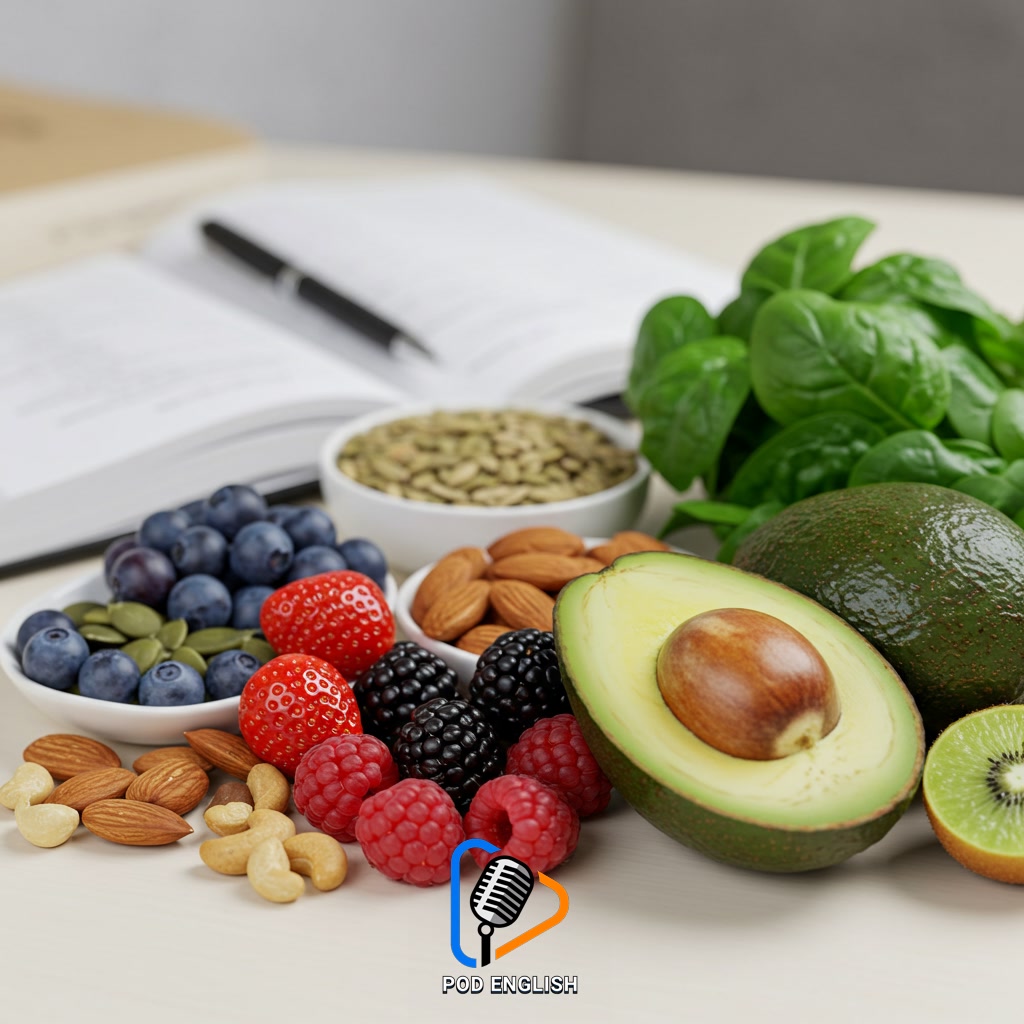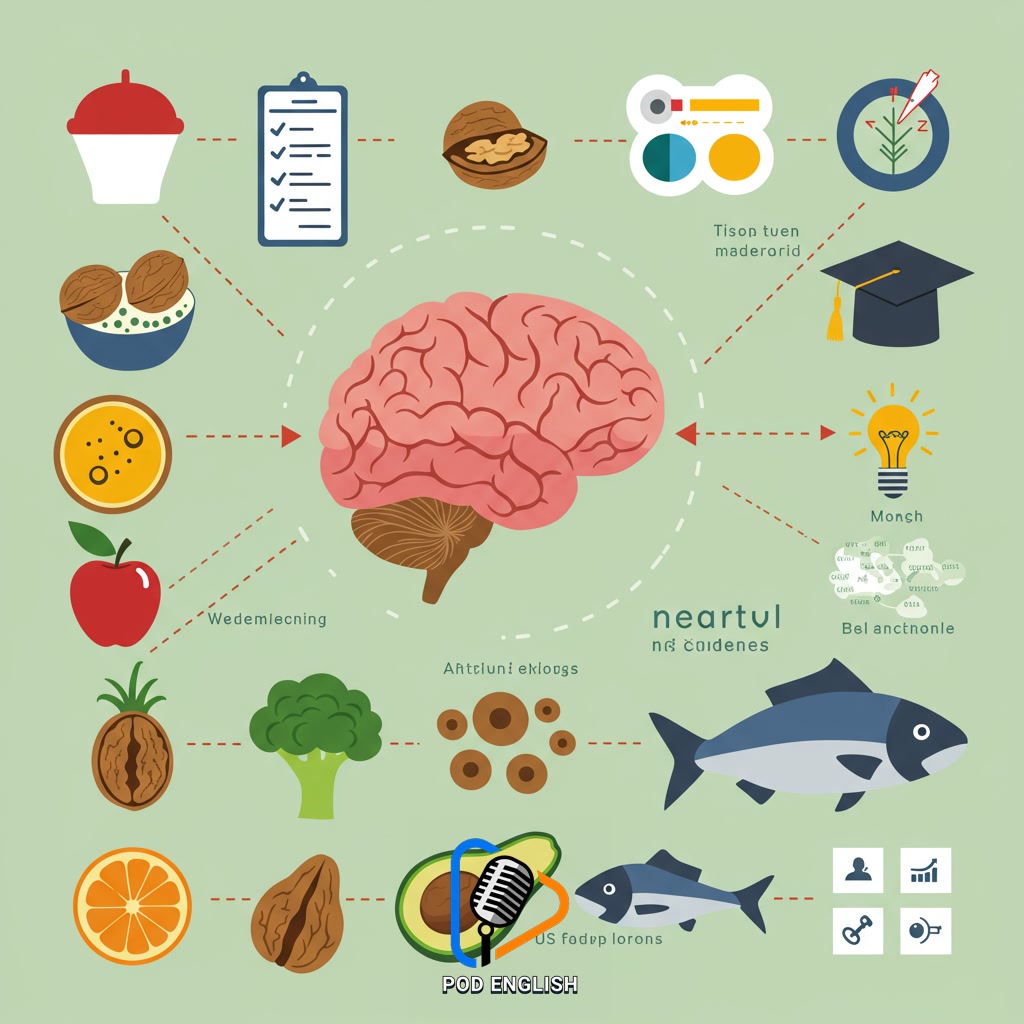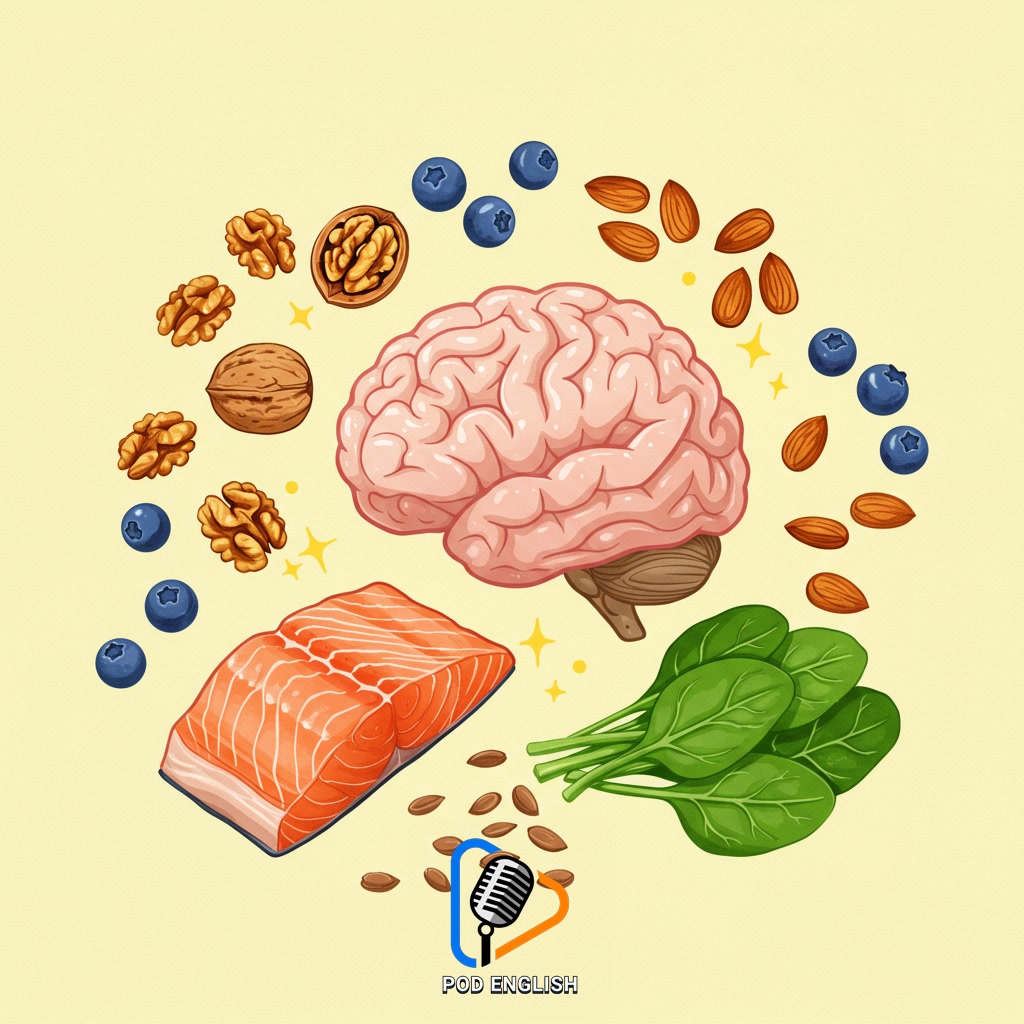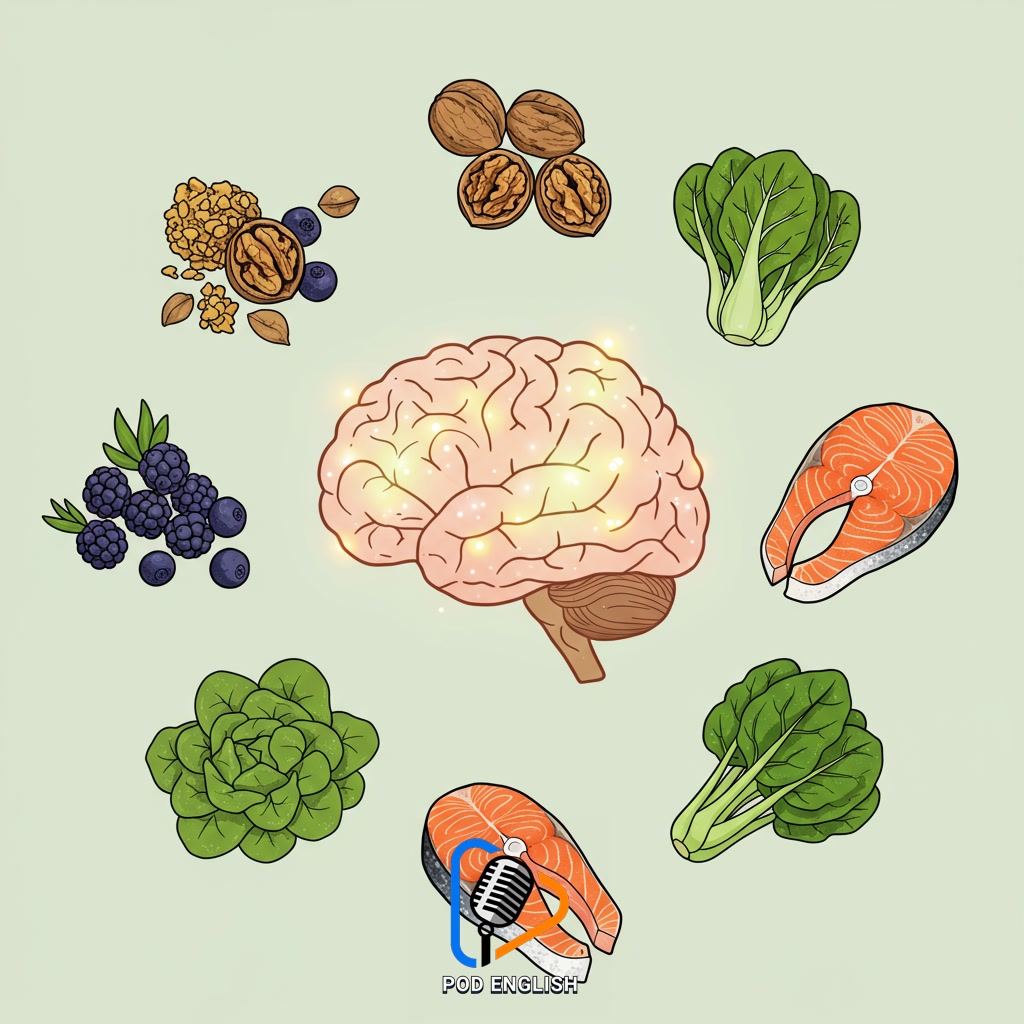Learn English
Best Brain Foods for English Test Success

This content focuses on identifying foods that can enhance cognitive abilities essential for excelling in English tests. It explores how specific nutrients support memory, concentration, and overall brain health, which are vital for effective English learning. Discover practical dietary tips to fuel your brain and optimize your performance when preparing for and taking English exams.
Table of Contents
- Section 1: The Connection Between Nutrition, Brain Health, and Learning English
- Section 2: Essential Brain Foods to Boost Cognitive Function
- Section 3: Nutrients That Enhance Memory, Focus, and Concentration for English Tests
- Section 4: Practical Tips for Incorporating Brain Foods into Your Study Diet
- Section 5: Foods to Avoid for Optimal Brain Performance During Test Prep
- Section 6: Beyond Diet: Lifestyle Factors Supporting Brain Health for English Learners
Section 1: The Connection Between Nutrition, Brain Health, and Learning English
The food we eat plays a crucial role in how well our brain functions. Just like any other organ in your body, the brain requires specific nutrients to perform at its best. A well-nourished brain can significantly improve cognitive abilities such as memory, concentration, and processing speed. These functions are absolutely vital when you are learning English. Remembering new vocabulary, understanding complex grammar rules, staying focused during study sessions, and performing under pressure in tests all rely on a healthy, active brain. Therefore, paying attention to your nutrition isn’t just about physical health; it’s a powerful strategy to enhance your mental clarity and learning efficiency, directly impacting your success in mastering English.

The Connection Between Nutrition, Brain Health, and Learning English
Section 2: Essential Brain Foods to Boost Cognitive Function
A well-nourished brain can support optimal function, which is crucial for mastering English and performing well on tests. Focusing on essential brain foods means incorporating nutrients that directly benefit memory, concentration, and information processing. Key players include omega-3 fatty acids found in fatty fish like salmon, known for building brain cell membranes. Berries, packed with antioxidants, help protect brain cells from damage and improve communication between them. Nuts and seeds provide vitamin E and healthy fats, supporting cognitive decline prevention and enhancing focus. Leafy greens offer vitamins and minerals vital for brain health. By regularly including these foods in your diet, you provide your brain with the fuel it needs to stay sharp, absorb new vocabulary and grammar, and recall information effectively during your English exam.

Essential Brain Foods to Boost Cognitive Function
Section 3: Nutrients That Enhance Memory, Focus, and Concentration for English Tests
Building on the foundation of overall brain nourishment, this section highlights specific nutrients that are particularly effective in boosting the cognitive functions crucial for English test success: memory, focus, and concentration. Omega-3 fatty acids, commonly found in fatty fish and walnuts, are vital building blocks for brain cells and synapses, directly enhancing memory recall and cognitive speed. Antioxidants from colorful fruits and vegetables protect brain cells from damage, ensuring mental clarity and sustained focus. B vitamins play a critical role in energy production and neurotransmitter synthesis, providing the steady energy required for prolonged concentration during tests. Choline, abundant in eggs, is a precursor to acetylcholine, a key neurotransmitter essential for learning and memory formation. Incorporating foods rich in these nutrients can help sharpen your mind and optimize performance when tackling challenging English exams.

Nutrients That Enhance Memory, Focus, and Concentration for English Tests
Section 4: Practical Tips for Incorporating Brain Foods into Your Study Diet
Incorporating brain-boosting foods effectively into your study routine is key to maximizing their benefits for English test preparation. Instead of relying on sugary snacks or excessive caffeine, plan to integrate nutrient-dense options throughout your day. Start with a balanced breakfast including items like eggs or oatmeal with berries. Keep healthy snacks readily available, such as a handful of walnuts, almonds, or trail mix, which are excellent for sustained energy and focus during long study sessions. Add leafy greens to lunches and dinners, and consider fatty fish a few times a week. Hydration is also crucial; keep water within reach at all times. Preparing small portions of these foods in advance can make it easier to grab a brain-friendly bite when you’re deep in revision or practicing English skills, helping maintain concentration and memory recall.

Practical Tips for Incorporating Brain Foods into Your Study Diet
Section 5: Foods to Avoid for Optimal Brain Performance During Test Prep
While incorporating brain-boosting foods is vital for English test preparation, it’s equally important to be mindful of what to avoid. Certain foods and drinks can hinder concentration, cause energy crashes, and negatively impact cognitive function just when you need it most. Steer clear of excessive amounts of sugary snacks, drinks, and processed foods, as they lead to rapid spikes and subsequent drops in blood sugar, causing fatigue and difficulty focusing. Heavy, greasy meals can divert energy towards digestion, leaving less available for brainpower. Though tempting, relying on excessive caffeine for alertness can lead to jitters, anxiety, and a disruptive crash later. Choosing wisely by limiting these items helps maintain stable energy levels and mental clarity throughout your study sessions and during the English test itself.

Foods to Avoid for Optimal Brain Performance During Test Prep
Section 6: Beyond Diet: Lifestyle Factors Supporting Brain Health for English Learners
Moving beyond the direct impact of food, several lifestyle factors play a critical role in optimizing brain health, which is essential for effective English learning and test performance. Prioritizing quality sleep is paramount; sufficient rest allows your brain to consolidate memories and improves focus and alertness, vital for absorbing new vocabulary and grammar. Regular physical activity, even moderate exercise, increases blood flow to the brain, enhancing cognitive functions like memory and concentration. Managing stress through techniques such as mindfulness, short breaks, or deep breathing can prevent the negative effects of chronic stress on learning and recall. Staying adequately hydrated is also crucial, as dehydration can impair cognitive function. By incorporating these practices alongside a brain-friendly diet, English learners can significantly boost their mental clarity and readiness for exams.

Beyond Diet: Lifestyle Factors Supporting Brain Health for English Learners













